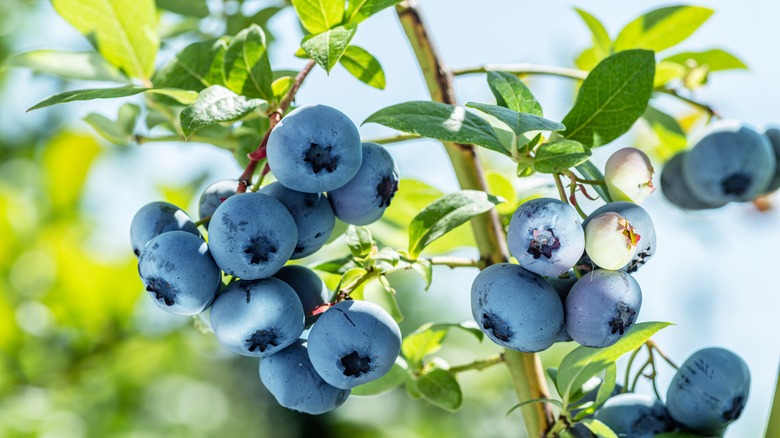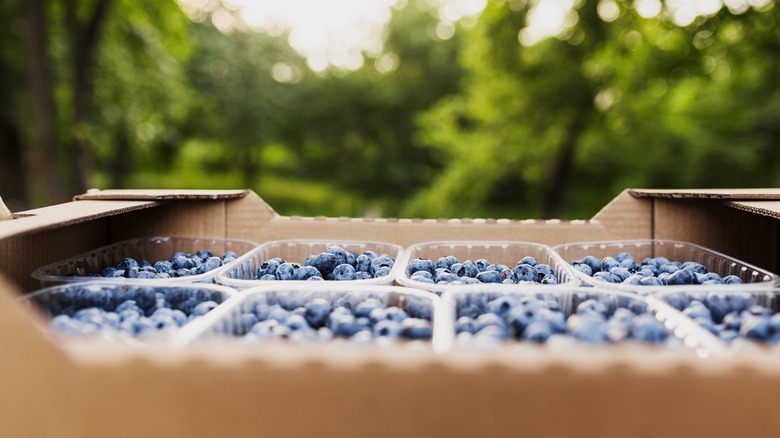The Scary Reason These Freeze-Dried Blueberries Are Being Recalled
On Thursday, BrandStorm Inc. announced a voluntary recall for two lots of their subsidiary Nateirra's Organic Freeze-Dried Blueberry (per the FDA). The issue is that testing found traces of lead in the blueberries that exceeded the FDA's limit.
The freeze-dried blueberries were distributed throughout the United States via physical and online stores. The contaminated lots have the UPCs 812907011160 and 812907011160, the former of which has a best by date of December 2024 and the latter is good until January 2025. Both come in pouches that contain 1.2 ounces and bear the logo of the Natierra brand. Customers who purchased these freeze-dried blueberries can return them to the store where they purchased them for a refund. Online purchases can be refunded by emailing salesadmin@BrandStormInc.com.
Fortunately, no one had reported being sick by the time the recall was issued. However, people who consume large amounts of food with traces of lead can damage their nervous system or give themselves lead poisoning, which can result in symptoms that include abdominal pain, muscle weakness, and bloody or decreased urinary output. Children subjected to lead poisoning can suffer damage to their nervous system which leads to lifelong developmental issues.
However, the news came too late for one customer who wrote on Amazon: "I just got the FDA recall notice from Amazon that some batches were tainted with high amounts of lead. Of course, I've already eaten the bags." If you've already consumed the berries, see if symptoms develop. If so, please see your doctor.
But why is there lead in blueberries?
The possibility of lead poisoning is scary. However, what the recall has done has shown that the possibility is there, meaning it will be dealt with now, not later.
Produce can be contaminated with lead throughout the cycle from farm to packaging. Ganga Hettiarachchi, a professor of soil and environmental chemistry at Kansas State University, explained to the Soil Science Society of America "Absorbed lead tends to be held in roots...minimizing transfer from roots to shoots or fruits." This means that blueberries should be relatively protected from lead. So, either there is a massive lead issue at the farm or a serious breakdown in health and safety later along in the production process.
According to the FDA, a specific cause for the lead contamination has yet to be found. However, certain parts of the production process will receive scrutiny. Investigations, for example, found the origin of the blueberries was in Lithuania, prompting the suggestion that aggressive monitoring may be needed. The packing site is also cooperating. Further searching may find that Lithuanian blueberry farms do not screen for lead proactively enough. Still, as long as no one gets sick, the recall provides a good flag to prevent a more hazardous outbreak later on.

